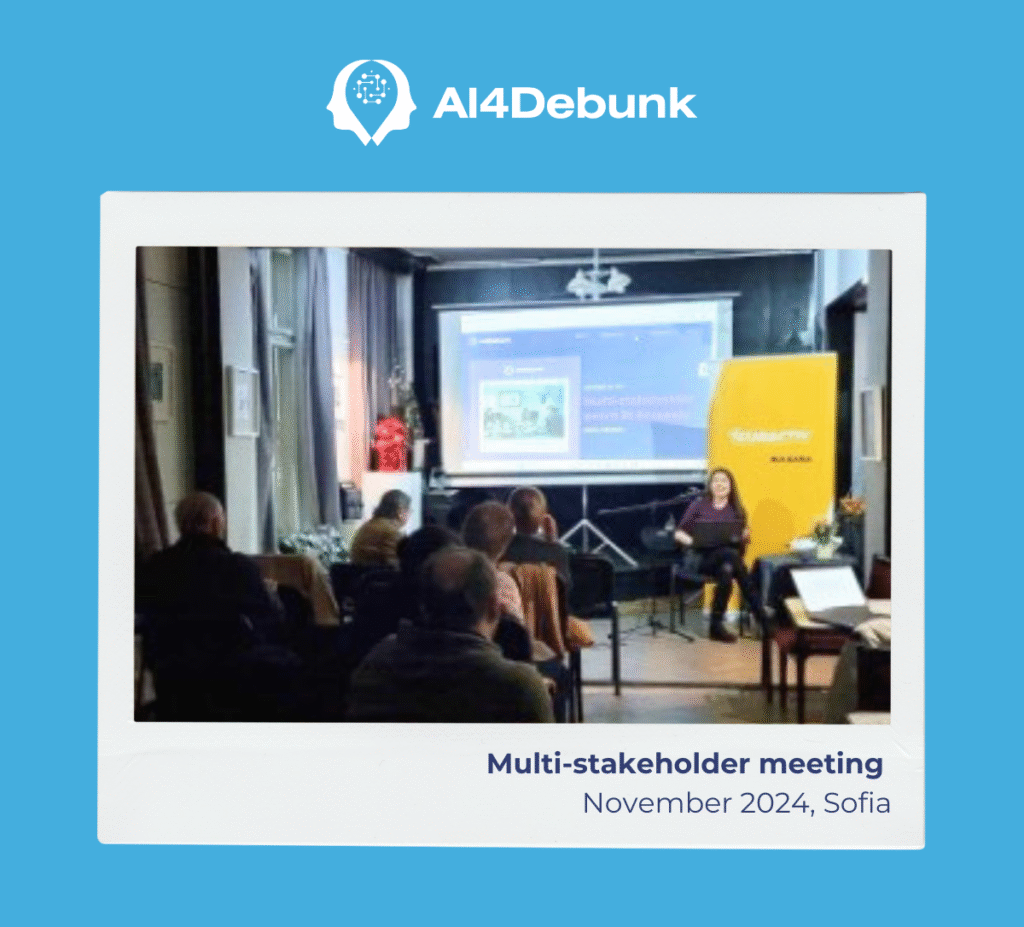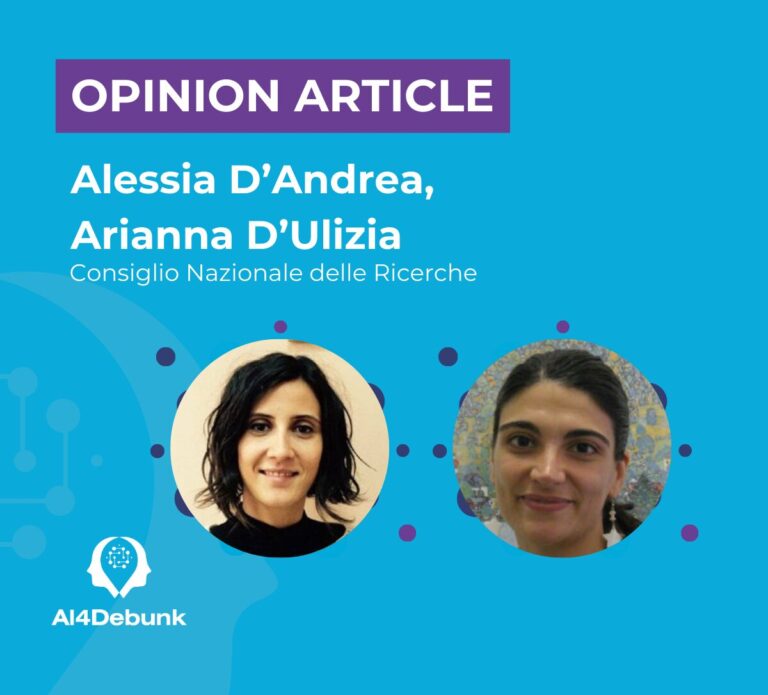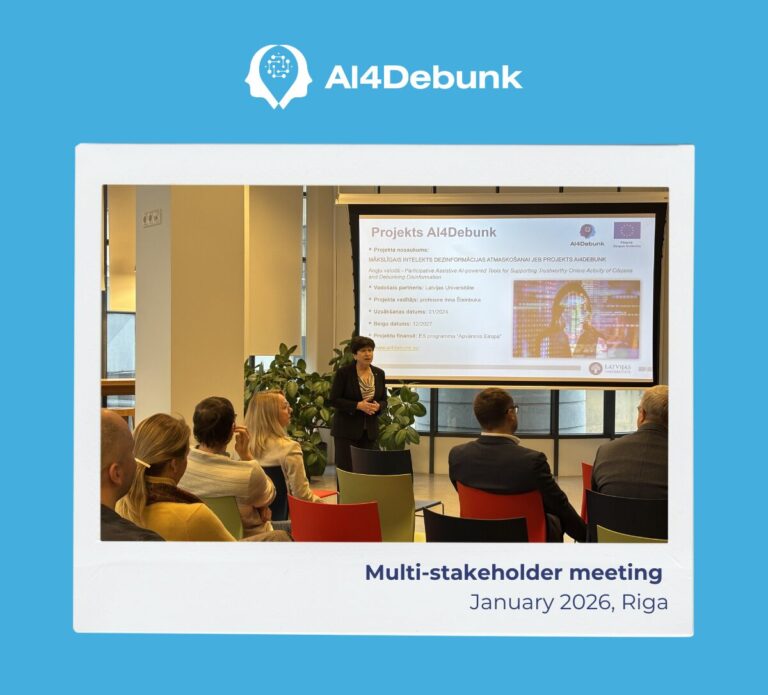On 25 November, AI4Debunk held its second multi‑stakeholder meeting in Sofia. Eleven participants—journalists, fact‑checkers, academics, civic‑tech activists and project team members—gathered at the Union of Bulgarian Journalists’ Club “Journalist” to exchange views on AI‑powered responses to fake news and to test early assumptions from Work Package 12.
Disinformation, AI and the Bulgarian Media Context
The session opened with an overview of AI4Debunk’s objectives and current progress, delivered by the EURACTIV Bulgaria team. Discussion quickly turned to Bulgaria’s particular vulnerability to foreign‑sponsored disinformation campaigns. Most attendees agreed that the “new normal” of manipulated content is already shaping public debate, and that home‑grown as well as external actors exploit social‑media ecosystems to deepen social divisions.
Participants stressed that AI solutions must be transparent, explainable and adapted to users with very different levels of media literacy, especially seniors and citizens in rural regions. Several speakers welcomed the EU AI Act but voiced doubts about how enforcement will work in practice; a public directory of media ownership and funding was suggested as an additional safeguard against covert influence operations.
Audience Insights: Perceptions and Behaviour
Following the presentation, participants engaged in an active discussion using a semi-structured format. Audience feedback provided valuable insights into the perception of disinformation and the potential applications of AI tools in addressing it:
-
- Familiarity with the Project: Five participants were already aware of AI4Debunk, while three encountered it for the first time.
- Perceptions of Fake News: Six attendees viewed fake news as a serious threat, but one considered the topic exaggerated.
- Experience with Artificial Intelligence: Seven participants had used AI tools, whereas three had not.
- Encounters with AI-Generated Fake News: Six participants had come across AI-generated fake news, though one admitted they paid little attention to it.
- Combatting Disinformation: Seven agreed on the importance of addressing fake news, while one felt the issue was overblown.
- Bulgaria’s Vulnerability: Nine participants believed that Bulgaria is particularly susceptible to disinformation campaigns.
- Willingness to Participate: Seven expressed interest in joining projects like AI4Debunk, while one showed no interest.
- Personal Experience with Fake News: Five admitted falling for fake news in the past, and eight observed fake news in established media outlets.
- Efforts to Protect Others: Nine participants reported warning family and friends about disinformation.
- Ability to Recognize Fake News: Eight felt confident in their ability to detect fake news.
Key Themes and Take‑aways
Access and Trust in AI Tools: The discussion highlighted the need to make AI tools accessible to a broader audience, particularly seniors and less tech-savvy individuals. Building trust in these tools was recognized as critical, as even reputable fact-checkers often face skepticism.
-
- Shades of Disinformation: Participants acknowledged that false information exists on a spectrum, ranging from accidental misinformation to deliberate disinformation. The framing of messages, particularly through emotional language, influences how readers interpret content.
- Role of Media and Collaboration: Some advocated for collaboration between journalists and fact-checkers to enhance news accuracy, with an emphasis on transparency and accountability in the media.
- Combatting Malicious Actors: Participants discussed the challenges of identifying and countering deliberate disinformation campaigns, with insights shared from case studies on adaptive disinformation tactics, particularly those from Russia.
- Education and Demystifying AI: A call was made to promote public understanding of AI and its mechanisms, starting with early education. This could help foster curiosity and empower individuals to use AI tools effectively.
The discussion underscored the complexity of addressing fake news and the need for a holistic approach involving technology, education, and collaboration across sectors. The event effectively fostered meaningful dialogue among stakeholders, addressing the project’s objectives and exploring solutions to the challenges posed by disinformation.




